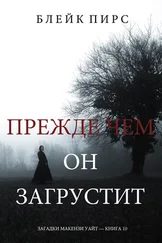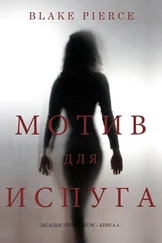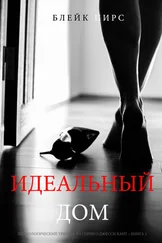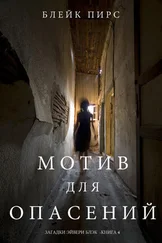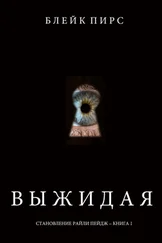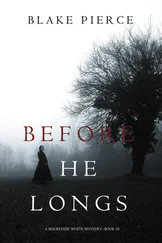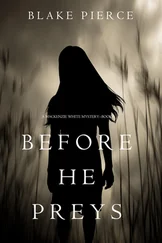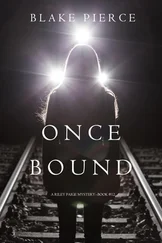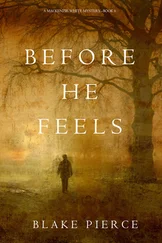“What was the aftermath of that story?”
“From what I was told, he got death threats. Attendance at the church decreased by about fifteen percent. He started to receive unsolicited emails filled with homosexual pornography.”
“Did he keep any of those mails?” Mackenzie asked.
“For a while,” Nancy said. “He had the cops called in on it but they were never able to make any connections. After it was clear that nothing was going to be able to be done, he deleted them all. I’ve never seen them personally.”
“And what about the teen who made the accusations? If you could give us his name, we could pay him a visit.”
Nancy shook her head, fresh tears spilling. “He committed suicide later that year. There was a note near the body where he confessed to being gay. It was yet another strike against Father Costas. It made the story seem all that more plausible.”
Mackenzie nodded, trying to think of any other accessible avenues. She knew, naturally, that trying to get this sort of information out of a grieving widow would be difficult. And when you added in a past ordeal with a news story that may or may not have had any truth to it, the whole thing just became that much worse. She supposed she could push for more information about the young man who had filed the complaint and eventually killed himself. But she could also easily find that information on her own while leaving this poor woman to get ready for Father Costas’s funeral.
“Well, Ms. Allensworth, thank you so much for your time,” Mackenzie said, getting to her feet. “My deepest sympathies for your loss.”
“Bless you, my dear,” Nancy said. She also got to her feet and led Mackenzie back through the house, to the front door.
At the door, Mackenzie gave Nancy a business card with her name and number on it. “I understand you are going through quite a lot,” Mackenzie said. “But if anything else should happen to come to you in the next few days, please give me a call.”
Nancy took the card without a word and slipped it into her pocket. She then turned away, clearly fighting back a larger swarm of tears, and closed the door.
Mackenzie headed back to her car, pulling out her cell phone. She dialed up Agent Harrison, who answered right away.
“Everything going well?” he asked her.
“I don’t know yet,” she said. “Can you do me a favor and look back about ten years to see what you can find about Father Costas being accused of sexually abusing a male leader of a youth group? I’d like as many details on the case as I can get.”
“Sure. You think it might present a lead?”
“I don’t know,” she said. “But I think a kid who claims to have been sexually abused by a priest who was nailed to the door of his church would certainly be worth looking into.”
“Yeah, good point,” Harrison said.
She ended the call, again haunted by images of the Scarecrow Killer and Nebraska. She had obviously dealt with killers striking out of a religious context before. And one thing she knew about them was that they could be unpredictable and very driven. She wasn’t going to take any chances and, as such, would not leave any stone unturned.
Yet as she got back into her car, she realized that a sexually abused boy did feel like a solid lead. Besides, other than him, the only thing at her disposal was returning to the FBI offices and seeing what she could mine from the files while hoping Forensics might be able to come up with something.
And she knew that if she sat idly, waiting for a break in the case, the killer could very well be out there plotting his next move.
It was 3:08 by the car’s dashboard when the pastor came out of the church.
He watched the pastor through the windshield from a distance. He knew the man was holy; his reputation was stellar and his church had been blessed. Still, it was rather disappointing. Sometimes he thought holy men should be set apart from the rest of the world, easier to identify. Maybe like those old religious paintings where Jesus had a large golden circle around his head.
He chuckled at the thought of this as he watched the pastor meet with another man in front of a car by the church. This other man was an assistant of some sort. He’d seen this assistant before but wasn’t concerned with him. He was very low on the food chain within the church.
No, he was more interested in the head pastor.
He closed his eyes as the two men talked. In the silence of his car, he prayed. He knew he could pray anywhere and God would hear him. He had known for quite some time that God did not care where you were when you prayed or confessed your sins. You did not have to be in some huge and gaudily decorated building. In fact, the Bible indicated that such elaborate dwellings were an affront to God.
With his prayer over, he thought about that bit of scripture. He muttered it out loud, his voice slow and gritty.
“And when thou prayest, thou shalt not be as the hypocrites are. For they love to pray standing in the synagogues and in the corners of the streets, so that they may be seen of men.”
He looked back to the pastor, currently walking away from the man and to another car.
“Hypocrite,” he said. His voice was a mixture of venom and sadness.
He also knew that the Bible warned of a plague of false prophets in the end times. That was, after all, why he had set himself to his current task. The false prophets, the men who spoke of glorifying God while eyeing the collection plates as they were passed around – the same ones who preached of sanctification and purity while staring at young boys with lustful eyes – they were the worst of them. They were worse than the drug dealers and murderers. They were worse than rapists and the most deplorable deviants on the streets.
Everyone knew it. But no one did anything about it.
Until now. Until he had heard God speaking into him, telling him to set it right.
It was his job to rid the world of these false prophets. It was bloody work, but it was God’s work. And that was all he needed to know.
He looked back to the pastor, getting into his car and leaving the church.
After a while, he also pulled out onto the street. He did not tail the pastor closely, but followed along at a safe distance.
When he came to a stoplight, he could just barely hear the musical noise from his trunk as several of his industrial nails clinked together in their box.
She walks up toward the church, the blood moon casting a shadow of her body on the sidewalk that looks like a stretched out bug – a praying mantis or a millipede perhaps. There is a bell ringing, a large bell above the cathedral, summoning everyone to come worship and sing and give praise.
But Mackenzie cannot get inside the church. There is a throng of people on the front stoop, congregating around the front door. She sees Ellington there, as well as McGrath, Harrison, her estranged mother and sister, even her old partner, Bryers, and some of the men she’d worked with while still a detective back in Nebraska.
“What’s everyone doing?” she asks.
Ellington turns to her. His eyes are closed. He is dressed in a nice suit, punctuated by a blood red tie. He smiles at her, his eyes still closed, and holds a hand to his lips. Beside him, her mother points to the front doors of the church.
Her father is there. Strung up, crucified. He wears a crown of thorns, and a wound in his side leaks something that looks like motor oil. He is looking directly at her, his eyes wide and maniacal. He is insane. She can see it in his eyes and in the leer of a grin.
“Has thee come to save thyself?” he asks her.
Читать дальше

